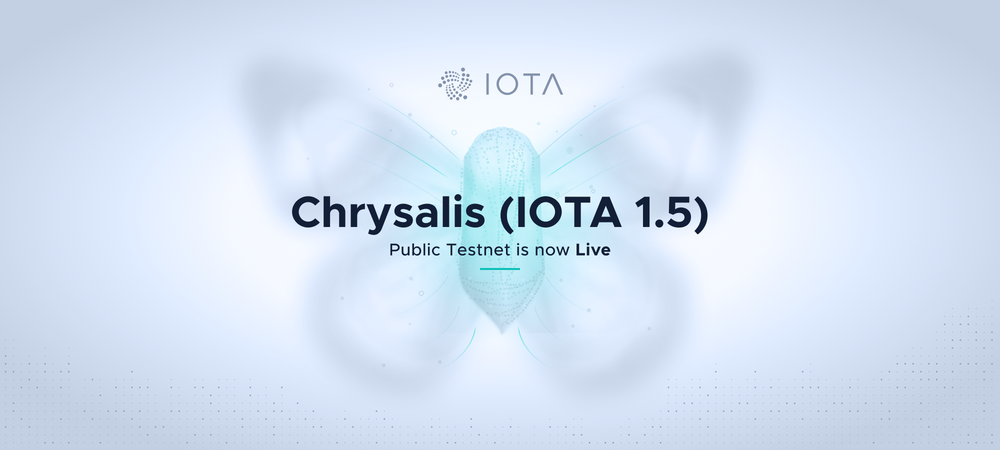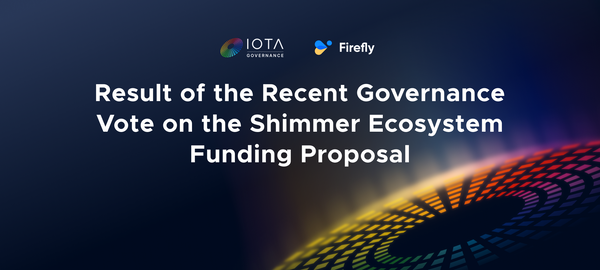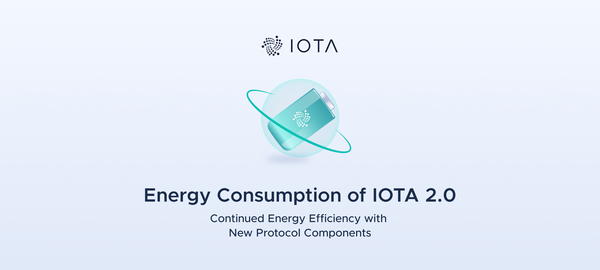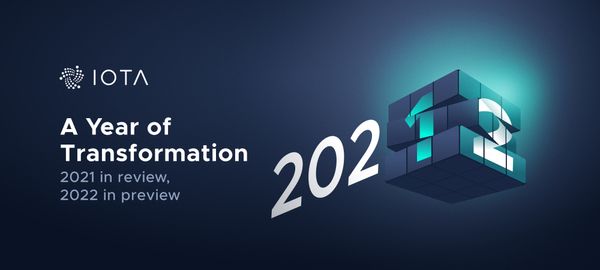Chrysalis (IOTA 1.5) Public Testnet is Live
IOTA 1.5
IOTA 1.5 (also known as Chrysalis) is IOTA's intermediate stage before Coordicide is complete. You can read more about the strategy for releasing Chrysalis here.
The Chrysalis phase 1 components were deployed to mainnet in August. Today the engineering team marks a significant milestone with the release of the Chrysalis phase 2 testnet.
IOTA 1.5 Testnet
Today we are opening the Chrysalis testnet to the public. This period is key to a successful protocol upgrade early in the new year. We welcome everyone to test the functionality and provide feedback.
The release of Chrysalis phase 2 on the IOTA mainnet will be the biggest upgrade the IOTA network has ever undergone. A complete protocol rewrite that sets the stage for adoption and brings us one step closer to IOTA 2.0.
Bear in mind that changes are still ongoing, and there will be bugs, audits will be performed, and breaking changes introduced. That’s all part of the process.
If you have an existing integration on the IOTA protocol, the testnet and libraries will allow you to start the initial work to transition your integration towards the final implementation of IOTA 1.5. These are the components we are publishing with the testnet:
- A new wallet.rs library with JS bindings via Neon.
- A new CLI wallet, built on wallet.rs, that allows you to perform basic value operations and build integrations that work with tokens.
- A new faucet for requesting testnet tokens for use in your wallet.
- An experimental JS library with Chrysalis APIs implemented, including MQTT and local proof of work.
- Hornet v0.6.0-alpha node version. Operators can set up their own nodes and connect them to the testnet.
Note that all the components are in an early alpha stage, with an outstanding audit. There will be bugs and things will break.
API endpoints
Nodes deployed to the testnet can be queried using a load balancer at:
- api.lb-0.testnet.chrysalis2.com
We recommend using the load balancer for most scenarios.
Single node endpoints, for example for MQTT use, are:
- api.hornet-0.testnet.chrysalis2.com
- api.hornet-1.testnet.chrysalis2.com
- api.hornet-2.testnet.chrysalis2.com
- api.hornet-3.testnet.chrysalis2.com
Node API is integrated according to the following specification.
Explorer
The network has an explorer deployed at the regular explorer website.
Setting up your own node
If you are interested in setting up your node, you need to use the develop branch on the official Hornet repository. You will have to manually peer to your neighbors. For that, visit the #chrysalis-testnet Discord channel and ask for neighbors.
Once you set up your node, we encourage you to to check out the dashboard :) We will share more about the dashboard later.
Wallet library
Wallet.rs is a general wallet library written in Rust. It is being utilized by the CLI wallet we have released today and by our upcoming wallet software, Firefly. Wallet.rs contains all the logic to safely build wallets or integrations that require wallet functionality (such as exchanges). It includes account state management and backup, account creation, transferring tokens and more.
The wallet library comes with Neon bindings for Node JS here.
Find more information on the library in the wallet.rs repository.
Command line wallet
The new CLI wallet provides an interface for the wallet.rs library that you can use directly from your command line. It’s great for testing, and for working with accounts and value transfers in a more lightweight manner than with a UI wallet.
Check out the CLI wallet in the cli-wallet repository. The current pre-release is here.
Faucet
A new Chrysalis faucet has been deployed with the testnet. This will be available for the Devnet later on. The faucet allows you to request test tokens to use in your integrations, for sending in the CLI wallet, and later for testing with Firefly.
You can find the faucet here. The faucet is rate limited and you can make a request every 60 seconds.
You will first need a testnet address, which you can generate using the CLI wallet, or wallet.rs.
The Faucet design is aligned with Firefly and our current design style.
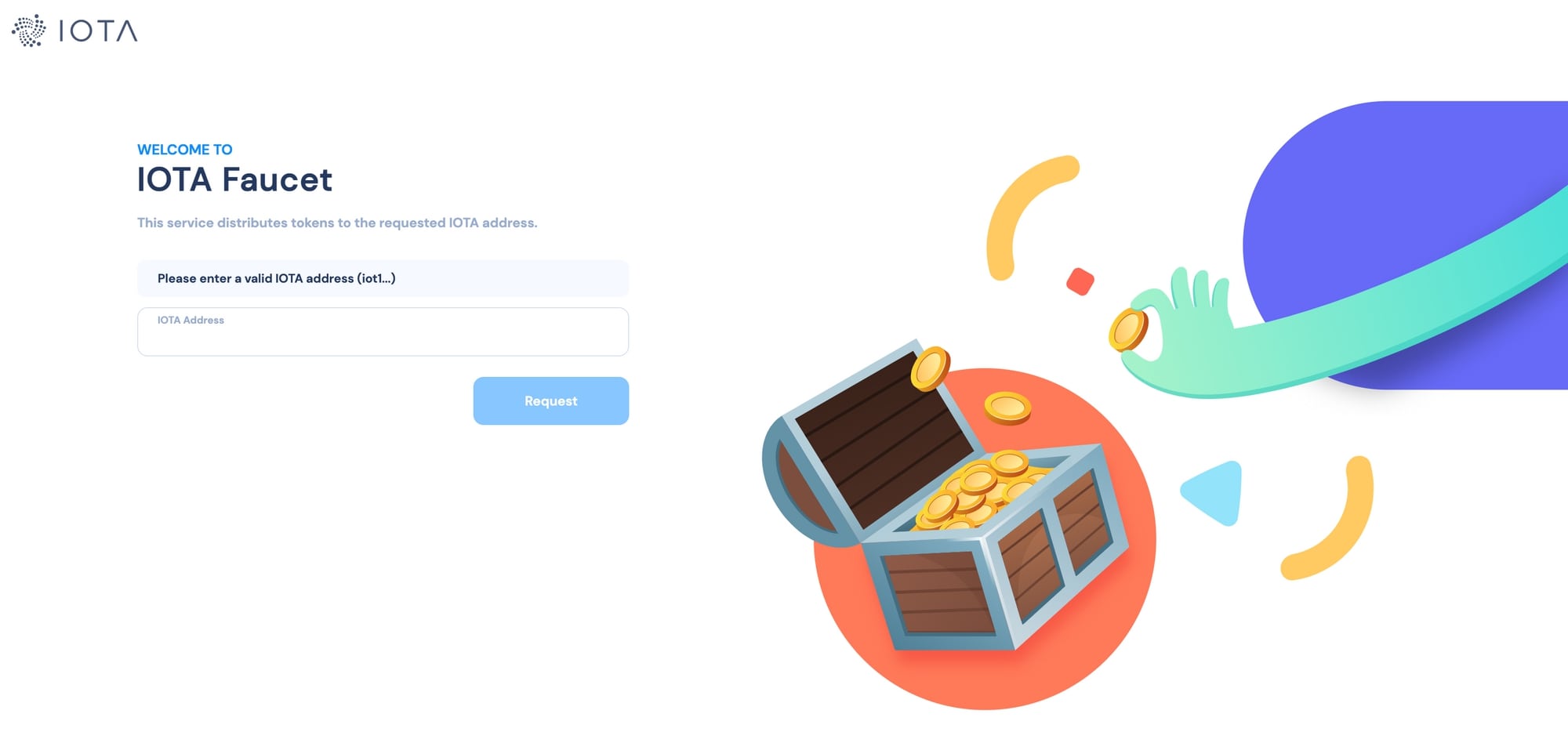
iota.js
iota.js is a new experimental library written in TypeScript that allows you to test the new Chrysalis APIs: send value and data transactions, manage peers and addresses, and more. The implementation supports MQTT and allows you to do local Proof of work (PoW).
Find the new iota.js library here.
We look forward to all of you testing the nodes, new libraries and CLI wallet on the Chrysalis phase 2 testnet!
Known issues
- In the CLI wallet, you need to delete the current account and create a new one if you want to connect to a different node. A fix is in progress.
- There is an issue with confirming messages with a very large amount of outputs (max ~18).
Found issues? Please ask in #chrysalis-testnet on Discord . Alternatively, open an issue yourself on the respective project GitHub.
What’s next
Next up, we will be releasing additional libraries to the testnet (including our core iota.rs library), adding support for Stronghold in the wallet.rs library and CLI wallet, releasing more documentation, and later Firefly will join the testnet as well. Stay tuned!
As always, we welcome everyone to stop by on Discord .
Follow us on our official channels and get the latest news!

